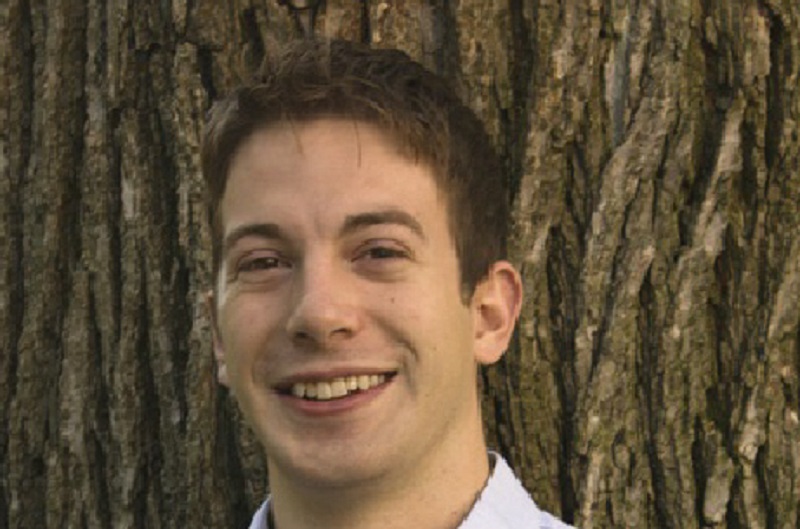
Gates scholar Toby Norman talks about what public health can learn from business.
Toby Norman [2010] is passionate about global health, but he realised after years of working with NGOs that a new approach to public health was necessary to have a real impact on the horrific suffering he saw.
So instead of continuing his biology training as a graduate and working on medical issues, he’s focusing on how lessons from business management could be used to improve public health.
Toby's background is fairly international. Born in Switzerland to English parents – his father is an engineer; his mother a landscape architect, he moved to the US at the age of five and spent most of his childhood in the beachside town of Cohasset, Massachusetts.
He took a gap year between high school and university and, fuelled by the internationalism that his parents had inculcated in him and a spirit of adventure, decided to go and see the world. It was to prove a life-changing experience.
Toby, who has a younger brother who is studying environmental science, worked for a few organisations in Africa and one in Asia. However, it was his experience as a volunteer at a hospital in Kenya which had the most powerful impact. “Seeing the conditions that people had to endure, particularly those in the HIV ward, was horrific and deeply frustrating,” he says, adding that there appeared to be no long-term planning on the part of NGOs. It was all about sending volunteers in for short one-off placements which he felt wasn't really benefiting the organisations they were working with.
“It was only when I was there that I realised the seriousness of the issues and realised that things could be done better,” he adds.
He returned to Harvard to do his undergraduate training in biology and social anthropology, but his experience had galvanised him to reflect on whether there were ways he could have a more effective impact on global health.
He set up an organisation, the Harvard Project for Sustainable Development, with fellow student Eric Meyerowitz, who had established a partnership with the community of el Limon in Nicaragua. The aim was to create a student group that not only talked about development, but took action and took action in a way that was community-based, rigorous and responsible.
Toby had met Eric on a four-hour bus ride during a student induction session. “Setting up the project and running training programmes was the most influential part of my undergraduate experience,” he says.
He adds that setting up the organisation, which worked mainly in Central and South America, was a process of “trial by error”. He got help from faculty mentors and by plugging into networks of other academics and students. For instance, when their partner community asked the organisation to help with a project on improving water quality, he went to the Harvard School of Public Health for assistance and the design of an epidemiological survey.
He also hooked up with some MIT researchers who helped with water analysis and field testing in places with no electricity. A Nicaraguan NGO provided household water filters. “All this knowledge exists, but many of the health issues that need tackling are really complicated and interdisciplinary. The hard part is bringing all those who can help together,” he says.
For his masters, Toby decided to move into management studies. “In my experience,” he says, “management has become the key issue. It's not just about the lack of technical tools, but about how issues are managed.”
He came to Cambridge on a scholarship in 2010 to do an MPhil and had aimed to stay just one year. However, he found a project that he loved and “jumped” at the opportunity to stay on to do his PhD in Management Studies. The focus of his project is on whether management science can be used to improve the delivery of health services. Toby intends to look at whether there are lessons from the commercial sector which can be used in public health.
“Why, for instance, can you get a cold Coke wherever you are in Africa, but you can't get access to basic healthcare and bed-nets?” he asks. “We know that a lot of public health improvements are due to behavioural changes such as washing your hands. A lot of NGOs come in and look at the issue as if it were a new problem and run public health campaigns as if they were reinventing the wheel, when marketing departments around the world have spent years perfecting what works already.”
For part of his research, he will be working with NGOs in rural India running randomised control trials around water purification. He will try different approaches to the distribution of chlorine tablets, such as selling them in shops or kiosks, to see what strategy is the most effective. “I am using management science to develop better ways to deliver public health. In the commercial field a business goes under if it is not successful, but it's much harder to evaluate successful or unsuccessful public health policies. However, there's been a bit of a breakthrough in the last 10 years in policy evaluation from development economics and more rigorous ways of testing the impact of health campaigns are coming into play,” he says. “There's a lot of excitement in the academic community about the potential for management science to help evaluate health policies and do some good.”












